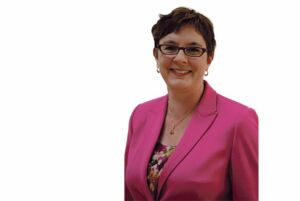Opinion
Living in an expat world | Out of country
This article is more than 13 years old.

I had to count the other day, but it’s now 18 years since I first lived in Denmark. Since then it’s been a rather on-off affair: a total of eight years here in DK squeezed in around stays in Belgium, the UK, Poland, Romania, Lithuania and a few other places for good measure. I mention this because it occurs to me that for many years now I have been an expat, but for many more years I was not aware of whether I was or was not an expat. For a while I always thought expats were someone else.
Apparently I was not alone, as feedback to a few previous columns in The Post, plus comments on any number of occasions during Expat in Denmark’s daily routine, affirms the fact that many expats do not at all associate themselves with being an expat. And this I find interesting.
For the last eight years or so, however, I have personally identified myself as an expat, mainly due to the lack of permanence in any of my arrangements, and that I always felt like I was passing through rather than putting down roots. This is the classic expatriate (expat): what the Oxford English Dictionary refers to as “a person who lives outside their native country” – it comes from the Latin term expatri?tus, formed by the union of the words ex (out of) and patri? (country).
The distinction between expat and immigrant – often the bone of contention for many a foreigner living and working here – is that an immigrant has permanently settled in a country. A great many ‘expats’ consider themselves immigrants, either through them having been here for so long, or out of a view that simply rejects the expat moniker.
The water muddies when the associated semantics come into play: ‘immigrant’ – perhaps especially in Denmark given the debates of the last decade – can have a negative connotation, along with foreigner and alien. One can find plenty to read about illegal immigrants, but never about illegal expats.
And therein is the crux of the issue. Expat, immigrant, foreigner, traveller, alien: each has its own meaning to an individual and is easy prey to snobbery and prejudice. Whether you wear the expat hat or the immigrant t-shirt, the chances are that if you’re reading this you associate with the common issues, dilemmas and – yes – problems associated with living in a foreign country.
So whether you’re an expat in Denmark, or immigrant in Denmark, or whatever – what unites us is far greater than what divides us. Surely we’re in danger of entering ‘Life of Brian’ territory if we get upset about a moniker: The Expatriate Peoples Front of Denmark vs The Popular Danish Immigrant Front, anyone? Read more at immigrantsindenmark.com.
About










































